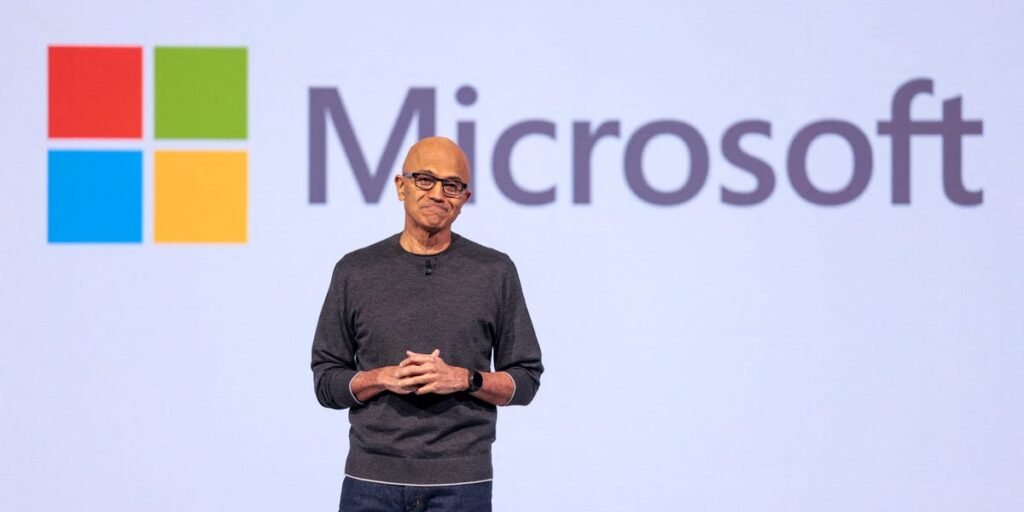For Microsoft’s CEO, Satya Nadella, the biggest challenge with AI isn’t building or deploying it — it’s getting people to change the way they work.
Work processes need to shift with tech advancements, Nadella said during a fireside chat hosted by Y Combinator.
“When someone says, ‘I’m going to now do my job, but with 99 agents that I am directing on my behalf,’ the workflow is not going to be constant,” he said. “Even the scope of your job is going to change.”
Change management is the main bottleneck, Nadella said in the conversation, which was published Thursday.
He pointed to LinkedIn, which Microsoft owns, as an example of how AI is already reshaping roles. The company has started merging traditionally separate functions — like product design, front-end engineering, and product management — into a single role: the “full-stack builder.”
“That’s a change in scope of even a job,” he said. “How do you then rebuild the product team with new roles, new scopes?“
Microsoft said in May that it plans to cut about 6,000 jobs, which is less than 3% of its global workforce. A spokesperson said that these cuts were not performance-driven.
Business Insider reported in April that these cuts are intended to reduce the number of middle managers and increase the ratio of coders versus noncoders on projects. Microsoft organizations want to increase their “span of control,” or the number of employees who report to each manager.
Nadella did not respond to a request for comment from Business Insider.
Will AI lead to new jobs or job destruction?
Tech leaders have been divided on whether AI will create new roles or cause mass job destruction.
Jensen Huang, the CEO of chipmaker Nvidia, said AI will change everyone’s jobs. “It’s changed mine,” he told reporters on the sidelines of Vivatech in Paris in June.
He also said that some roles would disappear, but that AI could unlock creative opportunities.
Dario Amodei, the CEO of AI startup Anthropic, warned that AI may eliminate 50% of entry-level white-collar jobs within the next five years.
“We, as the producers of this technology, have a duty and an obligation to be honest about what is coming. I don’t think this is on people’s radar,” Amodei told Axios in an interview published in May.
To cope with the changes, executives say everyone — from the C-suite down — needs to use AI.
Amazon’s CEO told employees to get with the AI program in a public staff memo last week.
“As we go through this transformation together, be curious about AI, educate yourself, attend workshops and take trainings, use and experiment with AI whenever you can,” Andy Jassy wrote.
He also said that AI is changing the company’s workflow, and that it is going to “reduce” the company’s workforce in the next few years.
LinkedIn’s cofounder, Reid Hoffman, said AI should be baked into every team’s day-to-day work, whether at a five-person startup or a giant company.


